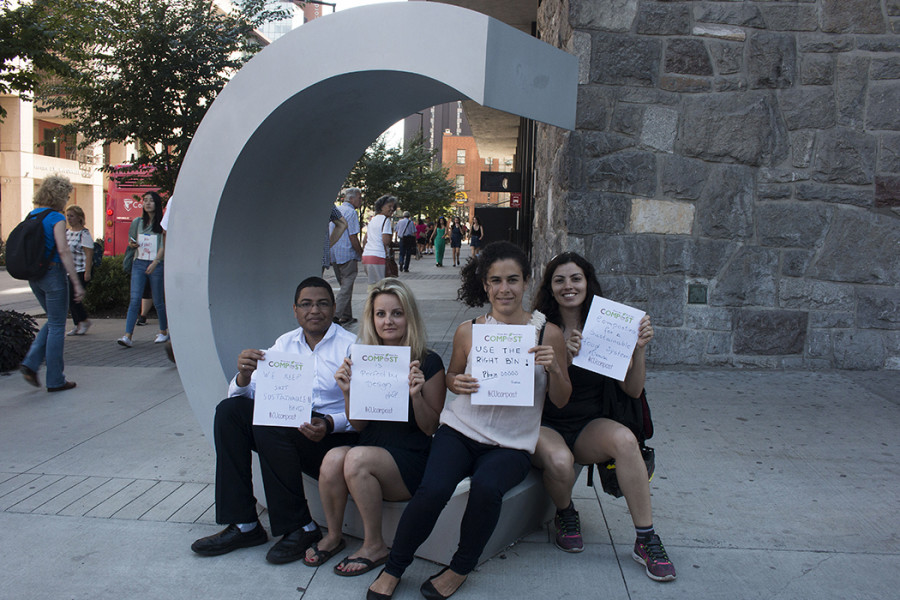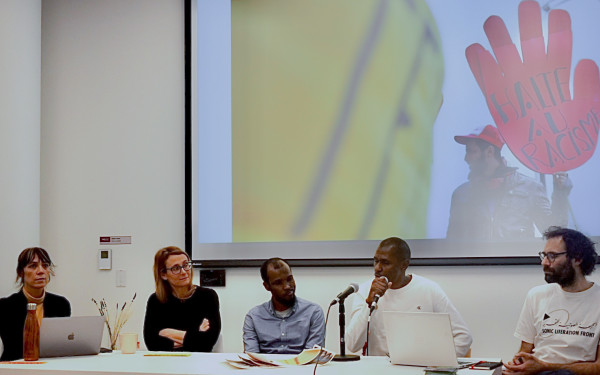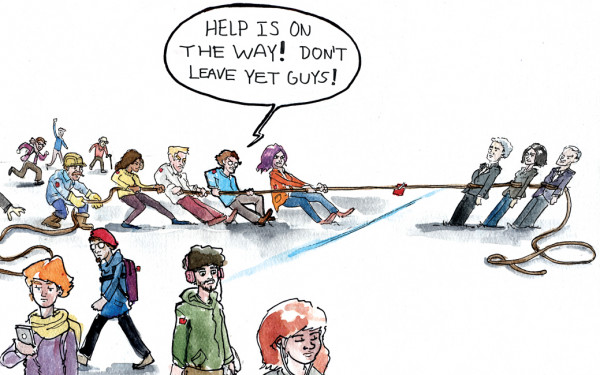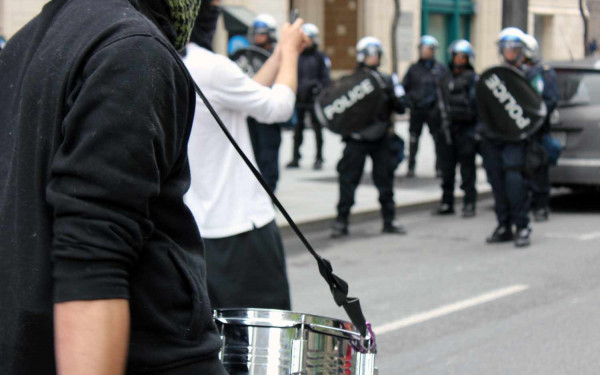Waste Not, Want Not
PhD Student Collaborates with ConU to Educate and Encourage Students to Compost
What’s the difference between a brown paper bag and an empty bag of chips? One is compostable and the other isn’t. Can you tell?
If you can’t, that’s okay. Most students aren’t aware of what can and cannot be composted. Concordia’s organic, compostable waste accounts for 43 per cent of the university’s total waste—only 26 per cent of compostable matter is composted. A new three week campaign called Waste Not, Want Not is looking to kick the wasteful habit by educating students on the issue and increasing composting efforts at the university.
Composting involves the decomposition of organic waste, such as food scraps; in turn, it becomes soil known as compost. Unfortunately, compostable waste still ends up in landfills, which emit large amounts of methane into the atmosphere. It’s one of the many factors behind climate change.
Prior to this campaign, Concordia already had a composting system in place, where 13 bins were spread out across campuses. Waste Not, Want Not aims to increase the number of bins to improve their visibility and accessibility.
One of the project’s founding members is Keroles Riad, who is completing his PhD in the Individualized Program in Engineering. He is joined by Gabrielle Caron, a student and outgoing sustainability coordinator for the Concordia Student Union, and Peter Stoett, director of the Loyola Sustainability Research Centre. Waste Not, Want Not was one of the three winners at the first edition of the Big Hairy Ideas Competition started by the Concordia Council on Student Life.
The competition, which took place during the spring of 2016, encouraged participants to “Get Hairy. Propose Bold, Audacious Ideas.” The CCSL described on their website that they were looking for projects that would have a strong impact on the university’s community.
“My original idea was to fix the composter at Loyola” said Riad. “[The university] said ‘well, the infrastructure we can deal with, both fixing the composting and increasing the compost bins, but what we need help with is the education’”
From Sept. 6 to 20, Waste Not, Want Not will be attracting attention across both the Sir George Williams and Loyola campuses through interactive and educational events, such as a sustainable food festival. All the food and cutlery will be compostable.
The campaign’s name is a World War II expression. It means to be resourceful and limit one’s own waste during difficult times. Riad wants to teach students that it’s important to know what to do after generating waste.
“For example, apples would inevitably have an apple core that cannot be eaten so it should be composted,” he explained. “So the idea is to encourage people to finish eating everything they pick up and compost what cannot be eaten.”
Environmental Health and Safety, an organization at Concordia which promotes environmentally-conscious work environments, will also be contributing to this project. This group is looking to add more bins to the 13 that are already on both campuses. Those new bins will be introduced during the festivities and students and faculty volunteers will be stationed next to them.
“The volunteers would tell [students], ‘Hey! You see this new bin? This is will be here all semester. This is how you use it,’” explained Riad. The campaign is aiming to build on what the university already has to offer.
From student-run initiatives like the greenhouse, to research on food sustainability drafted by the PERFORM centre, students and faculty will be given the opportunity to gain a more complete understanding of composting.
For Pamela Tudge, a part-time teacher and PhD student, getting students to start care involves thinking about waste and not simply wondering what to do with leftover lunch.
“It’s more [about a] larger picture of why we’re wasting all the time,” said Tudge. “Why we’re wasting, why we’re not wasting, [how we] makes those decisions.”
Adding compost bins and educating students and faculty is only one part of the project. The university’s Environmental Health and Safety department will be responsible for changing bin design and layout across the university.
“I think one of the problems is that the bins look different from one [building] to the other,” said Riad. “It seems that the only thing missing for composting at Concordia is generalizing those bin system from one building to the other.”
The goal is to gradually expand from important student spaces within the university, such as the EV and Hall building atriums, to areas frequented by students around the universities, like restaurants.
Riad’s ideal situation would be to have compost bins everywhere. However, he is aware that that scenario isn’t a possibility for now.
“The only problem with compost is that it has to be picked up every day otherwise it smells,” he said. “So it becomes extremely expensive to do that everywhere [across campus].”
Riad and his colleagues are looking to find composting sites closer to Concordia to counter this problem. As of now, the university composts its waste near Moose Creek, Ontario. The university’s composter at Loyola no longer functions properly due to contamination from non-compostable materials.
With the proper compost being contaminated, “essentially,” Riad said, “you don’t produce anything useful.”
Faisal Shennib, environmental coordinator at EHS, is working towards bringing back on-campus composting. When the composter at Loyola stopped working properly, EHS decided to work with Matrec, a company that allows Concordia to send all its organic waste, from fruit and vegetable scraps, to meat.
Shennib explained that the compost is then given to farms and used “as a cover to reduce methane emissions from landfill.” Based on EHS’s research, the greenhouse gas emissions between composting on-campus and off-campus were very similar.
“We felt okay with this option until we figured out exactly how we want to compost on campus again,” said Shennib.
While paper and plastic are easily recognizable materials, other substances that are subject to being composted are less clear. Therefore, there are higher chances for individuals to make mistakes and throw in the wrong item in the composting bin, risking contamination.
Despite this, Concordia’s environmental efforts don’t go unnoticed. Tudge, who has worked for other universities, believes that students are made aware of the changes happening in and around Concordia.
“I think one of the biggest things that strikes me about Concordia is visibility,” she said. “Visibility allows us to have much of that ‘everyday, all day’ awareness, where we’re seeing the signs, we’re seeing …information about it.”
Riad and his team will continue this trend by educating students with the hope of expanding students’ knowledge on composting and, in turn, enhance his own expertise on the matter.
“A big part of the educational campaign is [for myself to keep] learning,” he said, smiling.




_600_375_90_s_c1.jpg)


